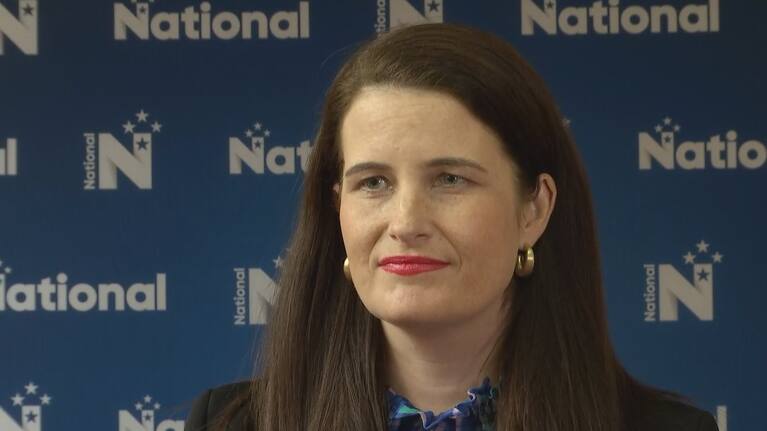Business confidence in the economy has fallen to levels not seen for 50 years, as fears of rising interest rates and a recession loom.
The New Zealand Institute of Economic Research (NZIER) released its latest Quarterly Survey of Business Opinion on Tuesday, revealing a net 73% of businesses surveyed expected general economic deterioration over the coming months.
The Government says it is working to address supply and demand headwinds.
It also revealed the business community's most pessimistic outlook since the survey began 53 years ago, on a seasonally adjusted basis.
A net 13% of firms reported a decline in activity in the final quarter of 2022.
That was the weakest since the June 2020 survey when the full impact of the first Covid-19 lockdown was captured.
While a greater proportion of businesses were passing higher costs on to consumers by increasing prices, profitability had still weakened.
Drop GST to 10% - retail leader
Retail NZ chief executive Greg Harford said his sector was "feeling a bit gloomy".
While consumer spending hit a record in December, he said that didn't account for inflation so "in real terms the sector is going backwards".
He said pressure on household budgets, supply and cost issues, as well as labour shortages were adding to the pain.
Business confidence was the lowest for the survey in 53 years. (Source: 1News)
"There's a whole lot of challenge and not a lot of cause for optimism."
He said the housing market needed to "come back to life" and rising interest and council rates were "sucking money" out of household budgets.

Harford said a drop in GST would help.
Currently 15%, Harford suggested it drop to as low as 10%.
That would mean a loaf of bread that currently cost $3.89 would cost $3.72, or a TV that currently cost $579 would instead cost about $553.
"GST is really a hidden tax."
Harford acknowledged such a move would impact Government revenue, but said it would "really help push things along" for the retail sector.
GST was raised from 12.5% to 15% in 2010, under the previous National Government.
Harford said he wanted to see the Government do more to "free up" immigration to fill retail labour shortages.
Hercules Construction builder Andy Yuan said he was struggling with plasterboard and plywood supply.
His company usually used New Zealand made, rather than imported products.
Yuan said renovations appeared to have reduced.

"It's quite a struggle for us because all the material increases, it will all be transferred to the clients.
"We have to explain how there's a shortage ... and a delay in their job."
He said that was frustrating and he said price stabilisation would help.
Yuan had to lay off staff because of a reduction in work after the Covid-19 lockdowns. He understood that was a industry-wide issue.
'Increased risk' of recession in 2023
NZIER principal economist Christina Leung said while Stats NZ data suggested dwelling consents were still "quite high", there was a decline in new orders and output, suggesting a decline in construction activity that would become more apparent later this year.
Rising interest rates softening housing demand and therefore house prices, meant there was less of an incentive for developers to build.
Retailers had reported declining sales, Leung said.
Interest rates would affect those re-fixing their mortgages, and put pressure on discretionary spending.

Almost half of mortgages were due for repricing in 2023, she said.
The survey suggested an "increased risk of a recession in the coming year".
Leung said overall, it was "a pretty grim set of results" and uncertainty around how much inflation could rise, along with Covid-19 and the war in Ukraine were contributing factors.
Another concern was China's domestic response to the Covid-19, and its effect on the New Zealand economy.
'Cost of living pain' on the way - National
However, National Party deputy leader and finance spokeswoman Nicola Willis said the Government's "failure to rein in spending and address labour shortages" meant New Zealanders were being "slammed by rapidly rising interest rates".

"It’s no surprise that the cost of that failure has left businesses feeling gloomy."
Willis believed more "cost of living pain" was on the way in 2023.
“Businesses have been slammed by cost pressures and labour shortages for more than a year. It’s well past time for the Government to present a real economic plan."
She said the Government was instead "distracted" by "failed pet-projects" like the TVNZ-RNZ merger and Three Waters reform.
The survey was open from November 28 2022 to January 9 and captured the effects of the Reserve Bank's November Monetary Policy Statement, when the Reserve Bank indicated it would take interest rates higher than initially expected to rein in inflation.





















SHARE ME